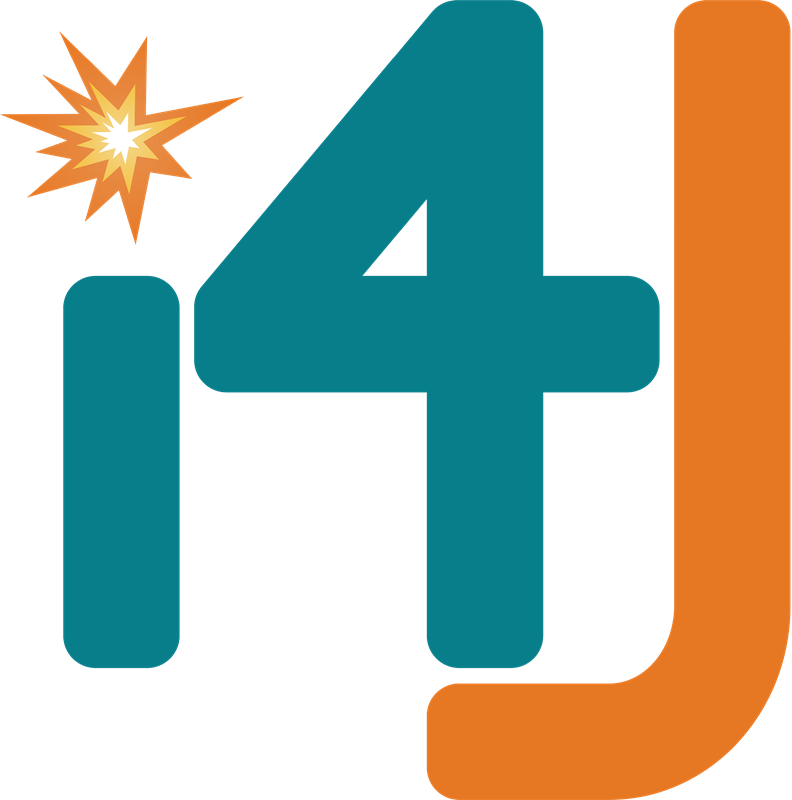What civil legal needs do DV advocates most want/need to advise DV survivors regarding?
DV survivors experience a wide range of civil legal needs.
Advocates indicated that survivors experience some civil legal issues more than others. Advocates are generally interested in helping with most of these identified legal issues.
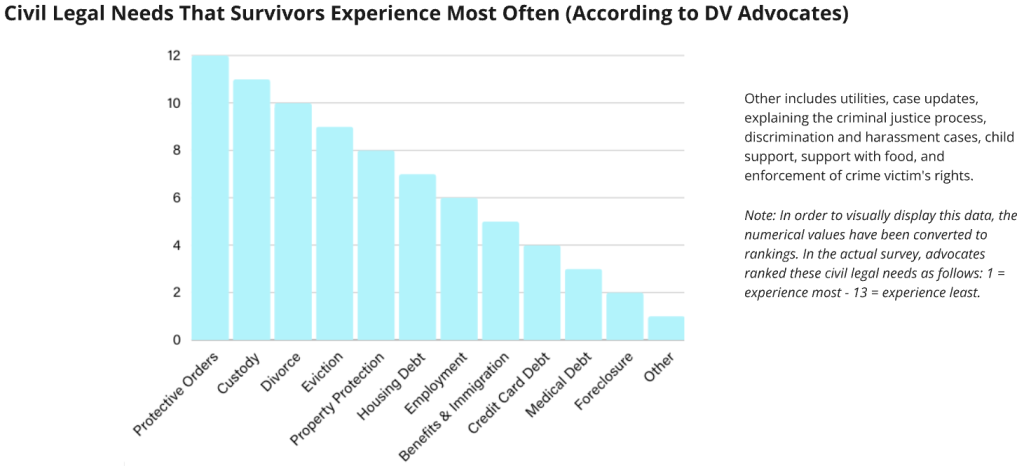
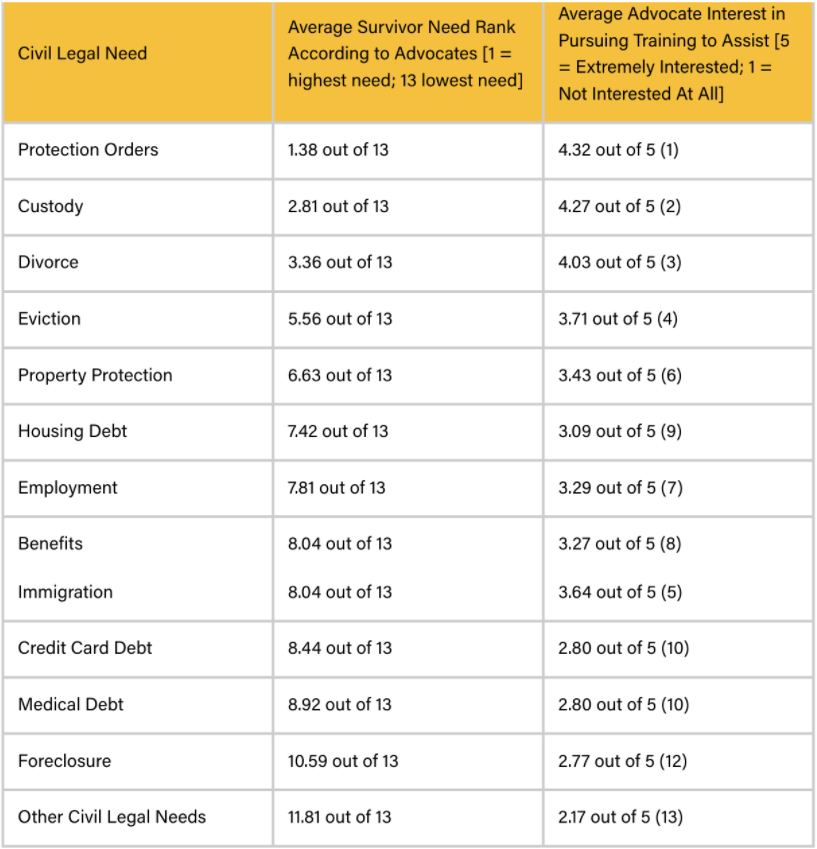
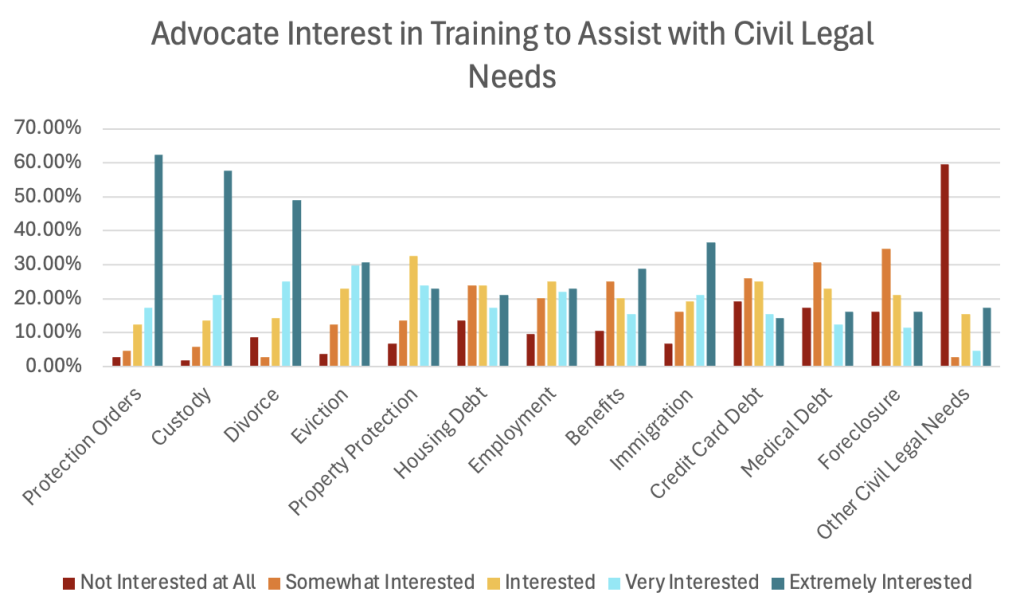
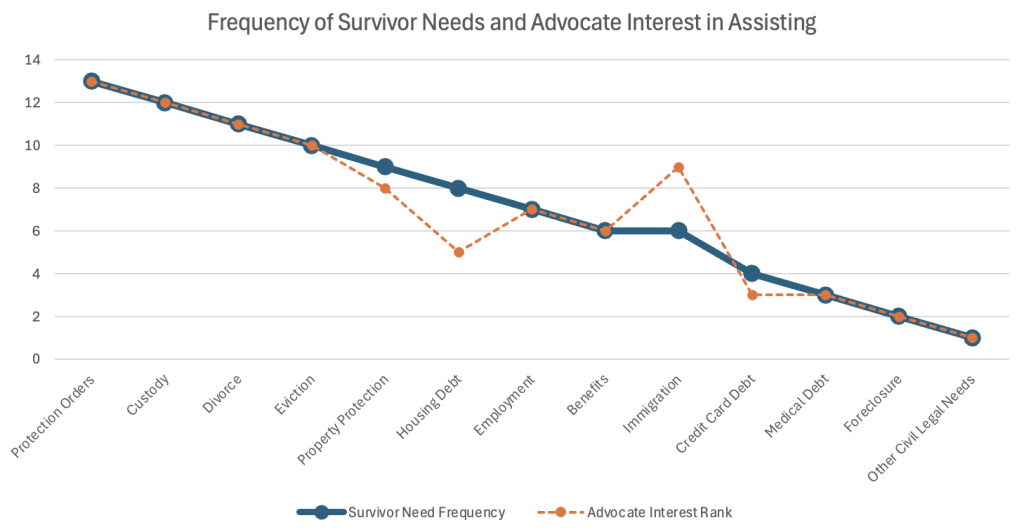
DV survivors frequently encounter challenges with protective orders, and advocates generally feel very confident in being able to assist survivors with protective orders. However, advocates can feel unequipped when more complex issues, such as sexual assault or trafficking are revealed during the initial stages of working with the survivor.
Survivors frequently request assistance with protective orders. Advocates are interested in learning to provide legal advice to survivors regarding protective orders.
92.3% of Advocates are Extremely Interested, Very Interested, or Interested in Training on Protective Orders

“[W]e get calls for restraining orders at least once a day.”
– Advocate from the West
“I pretty much see [protective orders] in my sleep because I do them, you know, every day and…I’ve just done so many of them.”
– Advocate from the Northwest
“[For] a protective order, we help fill out the documents and sit with them through all of it.”
– Advocate from the West
“[T]he difficult part is when you’re kind of more at the initial stages of things [of survivors wanting to get a protective order] and getting someone to realize maybe what you’re describing is, in fact, sexual assault too, there could be added components to it in terms of trafficking.”
– Advocate from the Midwest
“There’s not enough protections for the victims [in general].”
– Advocate from the South
DV survivors often need assistance with custody and divorce matters, and some advocates feel confident in their ability to assist DV survivors with these top civil legal needs for survivors while others feel unequipped to handle these legal needs.
Survivors frequently request assistance with custody and divorce. Advocates are interested in learning to provide legal advice to survivors regarding custody and divorce.
92.3% of Advocates are Extremely Interested, Very Interested, or Interested in Training on Custody Matters

88.5% of Advocates are Extremely Interested, Very Interested, or Interested in Training on Divorce Matters
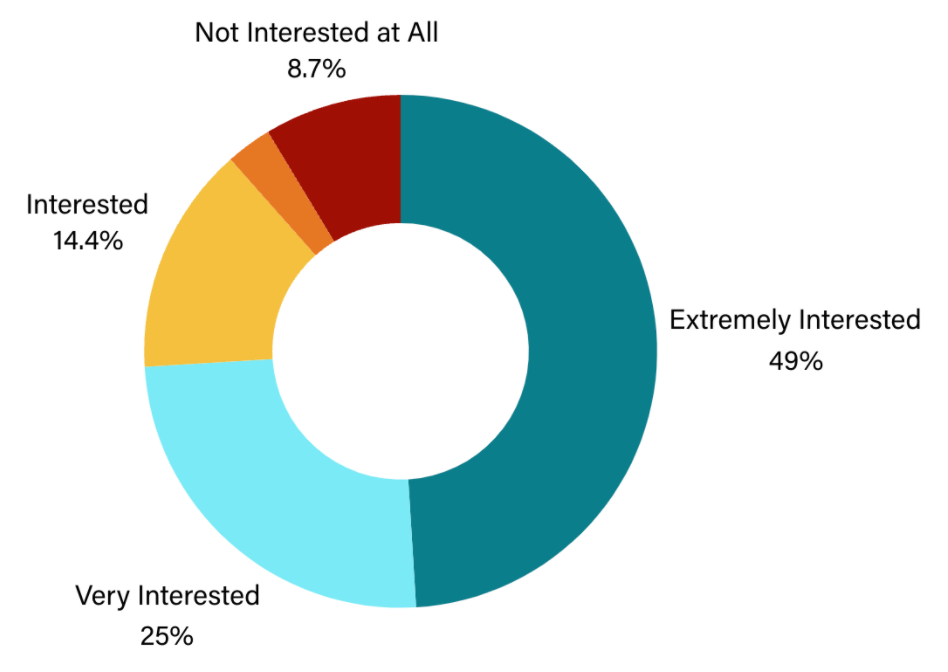
“It’s the most common [parentage and divorce], so everybody kind of knows, like, a slight amount about how to get somebody started with the process in that courthouse or in that [field].”
– Advocate from the Midwest
“When folks come with, like more complicated questions, especially with divorce and child custody, yeah, we kind of shift gears to focus more on how can I maybe facilitate a consultation [with a lawyer].”
– Advocate from the Midwest
“If somebody has a legal issue regarding custody, I don’t know where to even send them to.”
– Advocate from the West
“I will say it’d be useful for advocates to be equipped with knowing how to fill out divorce paperwork, knowing how to fill out and know about the child custody.”
– Advocate from the West
DV survivors frequently encounter housing challenges and seek assistance from advocates for those challenges.
Advocates reported varying degrees of interest in training to provide legal advice of different civil legal issues related to housing challenges.
83.7% of Advocates are Extremely Interested, Very Interested, or Interested in Training on Eviction

79.8% of Advocates are Extremely Interested, Very Interested, or Interested in Training on Property Protection

62.5% of Advocates are Extremely Interested, Very Interested, or Interested in Training on Housing Debt

49% of Advocates are Extremely Interested, Very Interested, or Interested in Training on Foreclosure
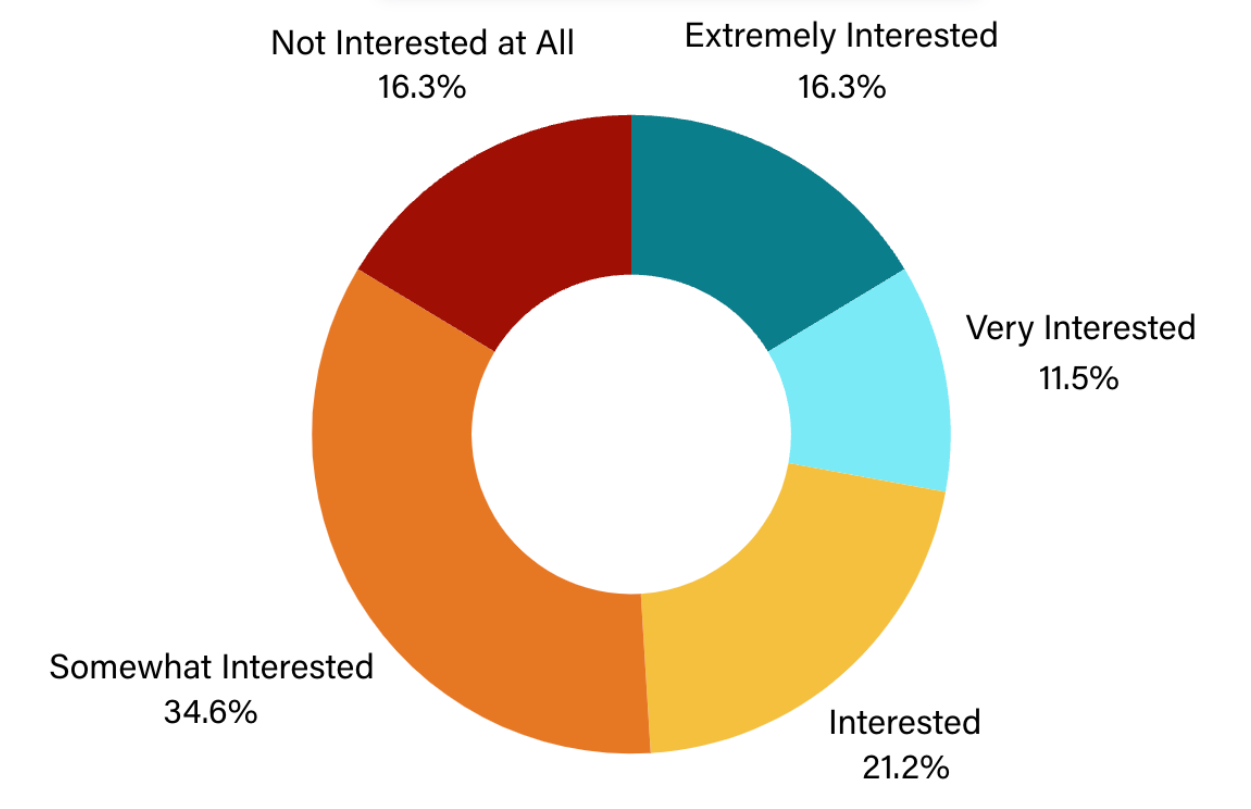
Housing-related civil legal needs were discussed frequently in interviews with advocates.
“A lot of [survivors] do experience, you know, facing eviction or housing related needs.”
– Advocate from the Northeast
“I really try to say that we can really only help with things that are kind of then tied to a situation involving DV or SV…so I can’t help you with the fact that your house is being foreclosed on…that’s outside the scope. This isn’t relating [to] a situation with domestic violence.”
– Advocate from the Midwest
“Property protection support is included in divorce if they have property. I support survivors by explaining court processes to them, helping them file paperwork, helping them prepare for their hearing (submitting evidence, etc.), and connecting them to other legal resources.”
– Advocate from the Northwest
“I have people come up trying to help with like eviction stuff. And I’m like, that’s not my realm of expertise. So I refer out.”
– Advocate from the Northwest
“[It] feels like housing is kind of almost the most accessible [civil legal need].”
– Advocate from the Midwest
“[I] feel very ill-equipped to speak to survivors about eviction.”
– Advocate from the Midwest
“[T]here are no housing funds at all. Like if someone doesn’t want to go to our emergency shelter, there’s no money. Well, we have nowhere to help them.”
– Advocate from the South
“[Survivors are] being discriminated against for their housing because they are DV victims.”
– Advocate from the Northeast
Advocates consider immigration issues a significant civil legal need, noting that survivors frequently seek assistance with immigration-related issues. However, advocates feel less equipped to tackle these situations than many other legal needs, partially because immigration issues are complex and intertwine with other legal issues.
Survivors frequently request assistance with immigration. Advocates are interested in learning to provide legal advice to survivors regarding immigration.
76.9% of Advocates are Extremely Interested, Very Interested, or Interested in Training on Immigration

Several advocates discussed immigration and the challenges this civil legal need creates in interviews.
“I feel like when it comes to immigration, there’s so many complex issues oftentimes.”
– Advocate from the Midwest
“[I feel less confident working with] immigration, like applying for the visas and that, just because we don’t typically have too many of those because of our geographical location.”
– Advocate from the Northeast
“We try very hard to serve the entire range of legal needs [for] every single survivor. So if we take on your immigration case, and your abusive partner files for divorce, we want to be able to do that as well.”
– Organization Leader from the Midwest
“When clients…[are] not a citizen, not only are they impacted legally, but they are impacted in terms of food stamps [and] public assistance.”
– Advocate from the Northeast
“If none of their children are citizens there…it’s so hard to help them. And then also their stay is limited, even more in shelter.”
– Advocate from the Northeast
“[W]e did have a lady, and she was here on a green card…the abusive partner had her green card, and it was about to expire, and just navigating that whole visa system was a nightmare.”
– Advocate from the Northeast
DV survivors need assistance navigating financial matters, specifically credit issues and debt relief, and advocates are dedicated to assisting survivors with these matters, but many advocates admit feeling unequipped to address financial issues.
Advocates reported being moderately interested in training to assist survivors with financial issues including credit card debt and medical debt.
54.8% of Advocates are Extremely Interested, Very Interested, or Interested in Training on Credit Card Debt

51.9% of Advocates are Extremely Interested, Very Interested, or Interested in Training on Medical Debt
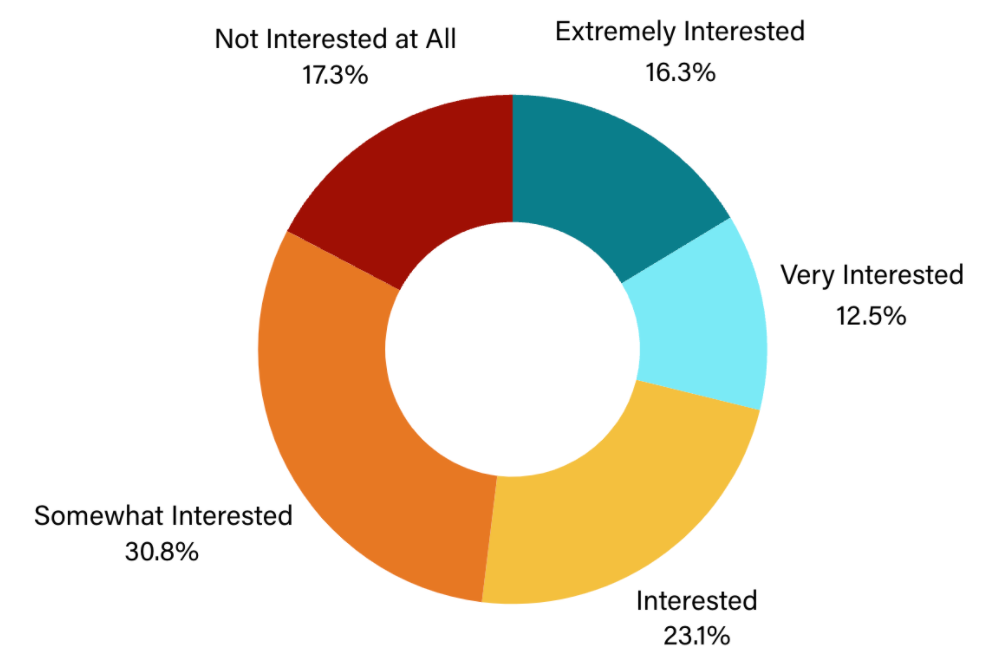
Several advocates discussed financial civil legal needs and their comfort level helping survivors with these needs in interviews.
“[Financial issues cases are] just something we’ve never gone down the path of exploring because it takes obviously, like a financial mind.”
– Advocate from the Midwest
“Small claims court, I don’t feel equipped to help with [that process].”
– Advocate from the Northwest
“[I feel less confident assisting with] small claims bankruptcies. And I’ve actually learned more about replevin cases. So at first, it was like, what’s a replevin.”
– Advocate from the West
“I don’t feel quite equipped to help with like credit issues.”
– Advocate from the Northwest
“[I am not confident with] probably anything around like debt relief and credit management.”
– Advocate from the Midwest
“Income [is at stake when they leave] because their income solely…was provided by that person [the abuser].”
– Advocate from the Northeast
Advocates reported interest in learning about helping people with employment problems, needs with benefits, and other civil legal needs.
Advocates reported being moderately interested in training to assist survivors with employment issues, benefits, and other civil legal needs.
70.2% of Advocates are Extremely Interested, Very Interested, or Interested in Training on Employment Matters

64.4% of Advocates are Extremely Interested, Very Interested, or Interested in Training on Benefits

37.5% of Advocates are Extremely Interested, Very Interested, or Interested in Training on Other Civil Legal Needs
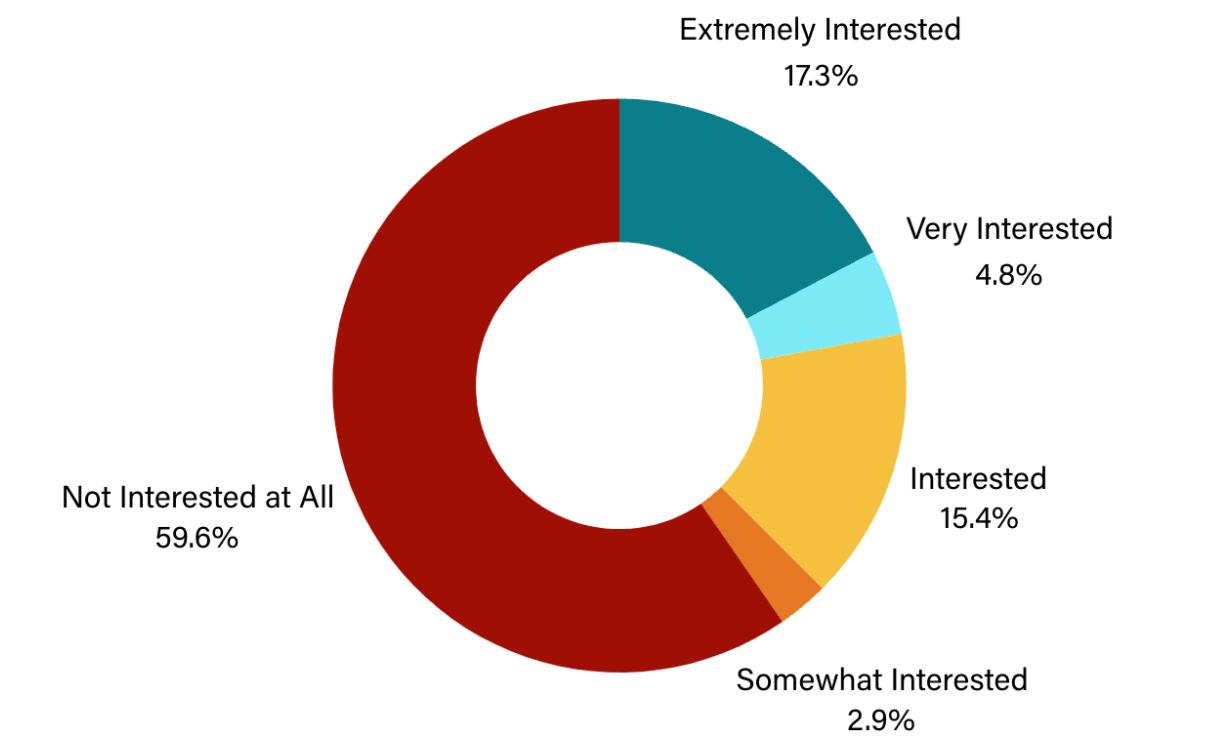
“[Survivors experience] a lot of benefits issues…I would say Social Security for [the] elderly is another area and income inequality within there.”
– Advocate from the West
